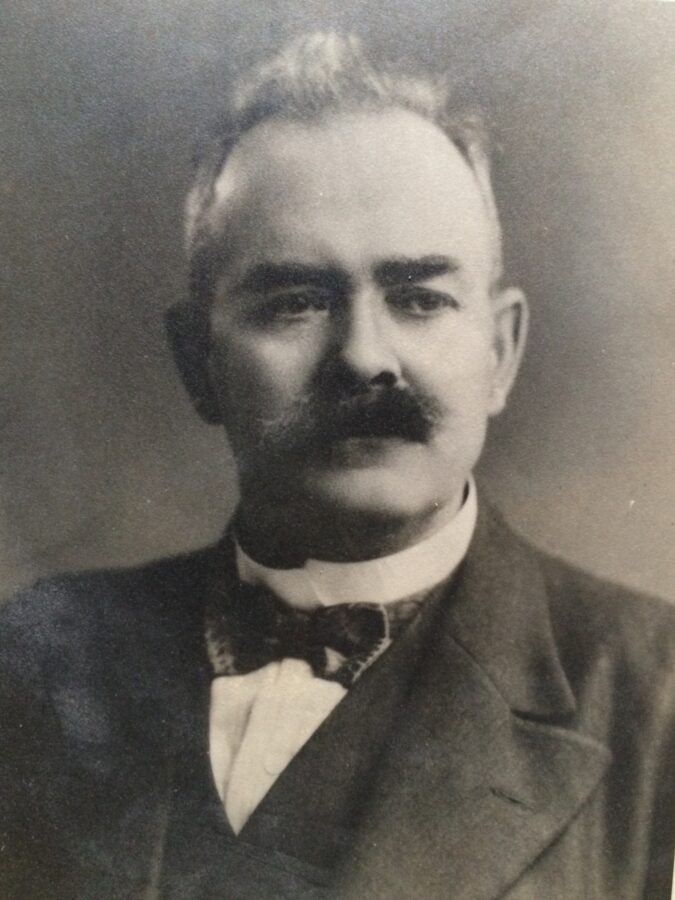
Kieran’s Our City, Our Town Article,
Cork Independent, 21 December 2023
Recasting Cork: Cork Corporation in Question
In early December 1923, at a meeting of the municipal ratepayers of the Cork Progressive Association, Mr Thomas P Dowdall presided with many prominent ratepayers present.
The Cork Examiner on 10 December 1923 outlined that Mr Dowdall, chairman, expressed his content at seeing so many large ratepayers present. The meeting was summoned because the Cork Progressive Association felt that the condition of affairs regarding the Corporation of Cork’s expenditure was a cause of concern. It was not a question of the amount expended. The ratepayers were being called together with the aim of putting a proposition before the Irish Free State government calling for a more efficient city administration space or a better value for money. According to Mr Dowdall, if the resolution was accepted it would be forwarded to government.
Mr Dowdall noted that the municipal rates had gone up, but there had been no increase in the operation expenditure of the Corporation or acknowledgment of the increased cost of living. He deemed the expenditure was excessive and the value obtained was unsatisfactory.
Mr Dowdall asked for a letter from the Postmaster General JJ Walsh to be read. In it Mr Walsh articulated that he was glad to learn that the Progressive Association was determined to strongly support the large task of municipal reform. He outlaid that different people have different views on this important subject and it is only after a number of experiments that the best results would accrue. He admitted that the then system of control through the medium of big and unwieldy popular bodies left much to be improved upon.
Mr Walsh continued in in his letter with his criticism of the executive officers and the condition of the city; “This ability on the part of responsible executive officers to enforce discipline is mainly responsible for the shameful condition of the city. There is no use shirking the fact that the ratepayers are bled white through rates and are getting very poor value for their money… no friend of the city’s welfare can promise such a state of affairs to continue without feeling personal acquiescence in the grave injustice to the physical well-being of the citizens, as well as to the city’s trade and commerce. A smart, well-kept city must necessarily not only attract visitors, and therefore trade, but will inevitably elevate the whole outlook of its people. I see no prospect whatever of such development with the present municipal government”.
The JJ Walsh letter persisted in his argument that the system itself required such a radical overhauling that nothing else done than appointing for a limited time of three or four “sharp, independent and energetic businessmen with practically unlimited powers can save the situation”. He believed that the time had come for those “who pay the piper should call the tune”, and insist on value for money.
On taking the floor, John Callaghan Foley proposed the resolution; “Owing to the excessive rates and the inefficient and wasted administration of the public services of the city or the present Corporation, we call upon the government to hold an immediate inquiry into the existing system of the municipal administration and to report on the changes necessary in order to secure an efficient and progressive city government by Commission or other ways, pending the complete reform of Irish local government. That copies of this resolution be sent to President Cosgrave, the president of the local government department and the representatives of the city”.
Sir Stanley Harrington, in seconding, said that the resolution had been put and what he deemed in a “very acceptable form”. He noted that it did not actually call for the abolition of the Corporation but asked for an inquiry into its administration; “It is not necessary to get into a state of excitement over municipal matters nor do we want to be in any way personal and dealing with what is the matter administration of the body corporate…there are some excellent members in that body and some excellent officials employed by them, but unfortunately those gentlemen were powerless owing to the very bad system that seemed to be obtaining the affairs of the Corporation…there is general universal demand that something ought to be done. The rates are pressing heavy on the people even on the largest firms and what could instance hundreds of cases of waste and bad administration”.
Mr J J Horgan argued that the Corporation of Cork had long overstayed their term, and that had been a strong factor in the expenditure concern. He noted they had also gone through a very difficult and trying period from the War of Independence and the Civil War, and there was the challenge of apathy amongst the general public too. He opined that every local government body in Ireland was three times too large and that the best administration they could get was from an independent committee of one. He continued that Ireland had a lot to learn from America in municipal affairs and that there a small Commission and three or four paid members dealt efficiently with municipal affairs.
The resolution was passed and was to set 1924 up as the year the Corporation would fall and an administrator in the guise of Philip Monahan appointed.
Happy Christmas to everyone and many thanks for the support during the year.
Kieran’s new book The A-Z of Curious County Cork is available in good Cork bookshop.
Caption:
1233a. Thomas Dowdall, c.1923 (picture: Dowdall family archive).